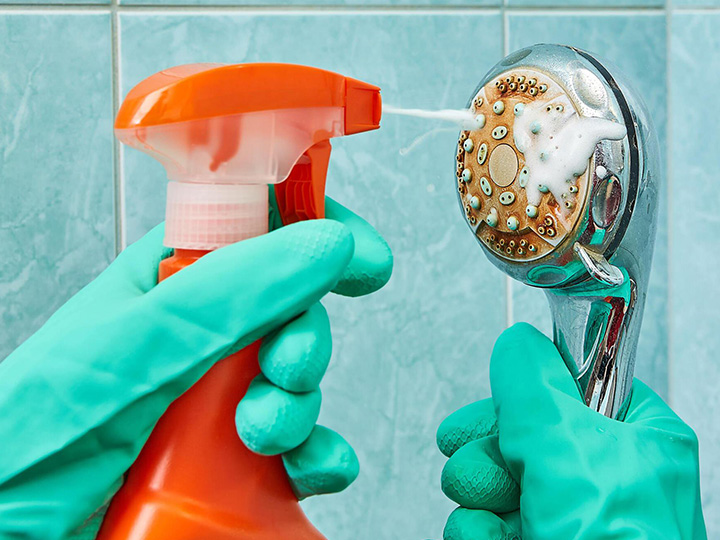
How To Clean Your Shower Head: Ensuring Efficiency and Hygiene
A clean shower head is not just about aesthetics; it’s about maintaining the efficiency and hygiene of one of your home’s most frequently used items. Over time, shower heads can become clogged with mineral deposits, especially in areas with hard water, leading to reduced water flow and a less satisfying shower experience.
In this comprehensive guide, we’ll walk you through the steps to effectively clean your shower head, helping to restore its performance and extend its lifespan.
The Importance of Regular Cleaning
Preventing Build-up
The key to a well-maintained shower head is to prevent mineral and limescale build-up. These deposits can clog the shower nozzles, leading to uneven water flow and reduced pressure. By cleaning your shower head regularly, you can ensure a consistent and enjoyable shower experience.
Health Benefits
A clean showerhead also plays a crucial role in maintaining your health. Over time, shower heads can become breeding grounds for bacteria and mould, which can then be sprayed directly onto you during use. Regular cleaning helps to mitigate this risk, ensuring the water you bathe in is as clean as possible.
Enhanced Performance
Beyond health and hygiene, a clean shower head also means enhanced performance. Water will flow more freely and evenly, allowing for a more enjoyable and efficient shower. This improves your daily routine and contributes to water conservation by ensuring optimal flow.
Step-by-Step Guide to Cleaning Your Shower Head
Initial Inspection
Begin by closely examining your shower head. Look for signs of limescale, mineral deposits, or any nozzle blockages. This initial inspection will help you determine the extent of cleaning required.
Simple Rinsing
In some cases, a simple rinse is all that’s needed. Turn on the hot water and let it run through the shower head for a few minutes. The force of the water can help dislodge any loose debris or build-up.
Deep Cleaning Method
You’ll need to remove the shower head for a deep clean to remove more stubborn deposits. Mix equal parts white vinegar and water in a bowl and fully submerge the shower head in the solution. The acidity of the vinegar works wonders in breaking down mineral deposits. Let it soak for several hours or even overnight if the build-up is significant.
Advanced Cleaning Techniques
Using a Toothbrush
After the soak, take an old toothbrush and gently scrub the nozzles and any other areas with visible build-up. The bristles can get into the small crevices and remove deposits that the soaking didn’t dissolve.
Reassembling and Testing
Once you’re satisfied with the cleaning, carefully reassemble the shower head and reattach it to the hose or pipe. Turn on the water to test the flow, adjusting the nozzles to ensure an even spray.
Preventative Measures for a Cleaner Shower Head
Consider installing a water softener if you live in a hard water area to minimise future build-up. This can significantly reduce lime scale and mineral deposits. A quick weekly rinse with a vinegar solution can keep your shower head clear between more thorough cleanings.
Wrapping Up
By incorporating these steps into your cleaning routine, you can maintain a shower head that looks clean and performs efficiently, providing you with a better shower experience while contributing to the overall cleanliness and hygiene of your bathroom.
Ready to elevate your bathroom? Start with the basics, and let Embury’s Carpentry take it from there! Contact us now for your bathroom renovations.
Frequently Asked Question
Clean your shower head thoroughly every 1-2 months for optimal performance. You might need to clean it more frequently if you’re in a hard water area.
Yes, fill a plastic bag with vinegar solution for a quick clean, secure it over the shower head, and let it soak. This method is convenient for light cleaning and maintenance.
While chemical cleaners can be effective, they may also be harsh on some materials and finishes. Vinegar is a safer, natural alternative that is just as effective for most build-ups.
Over time, hard water can lead to irreversible damage due to the persistent build-up of minerals. Regular cleaning and preventive measures can help protect your shower head from long-term damage.

